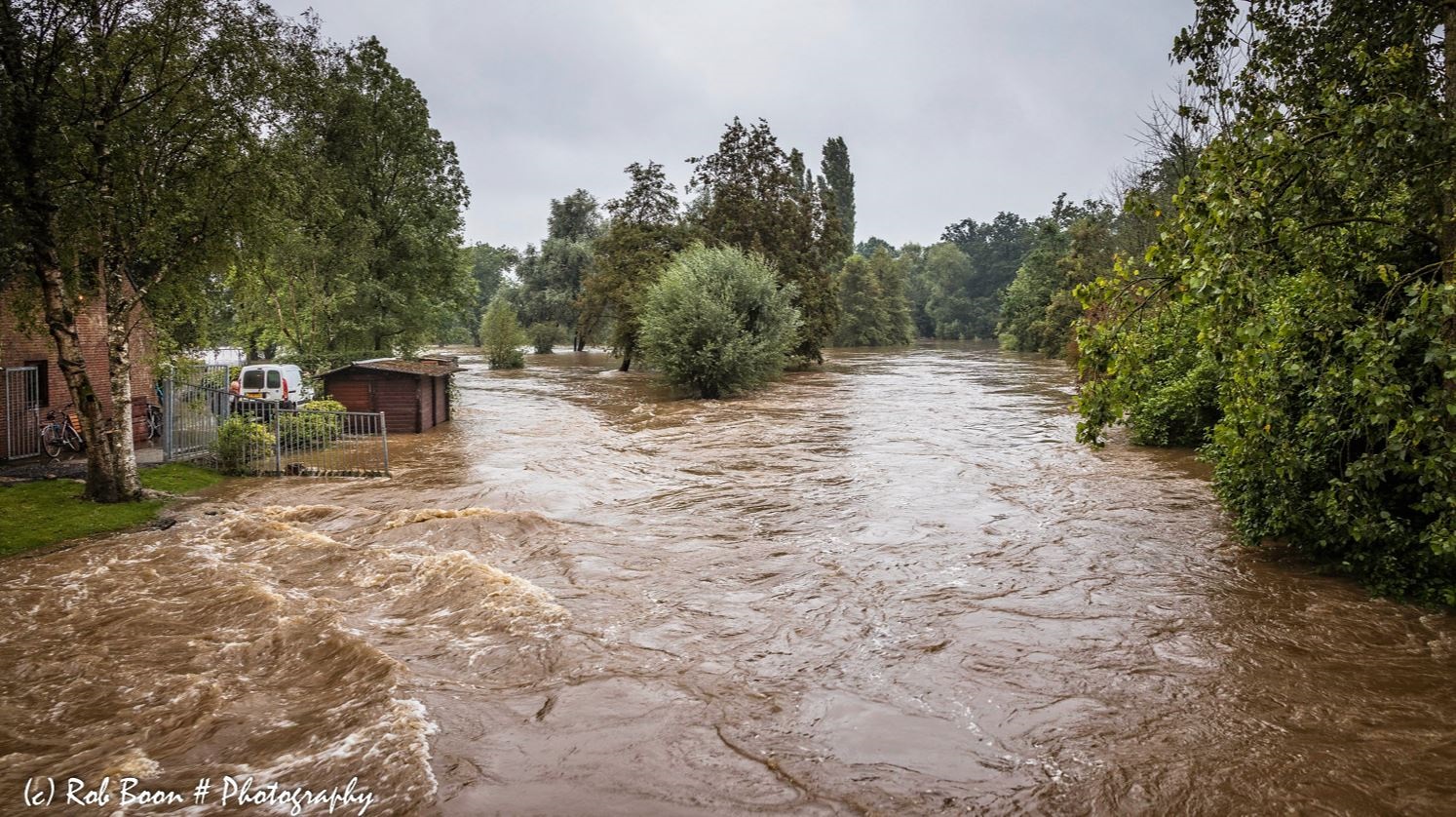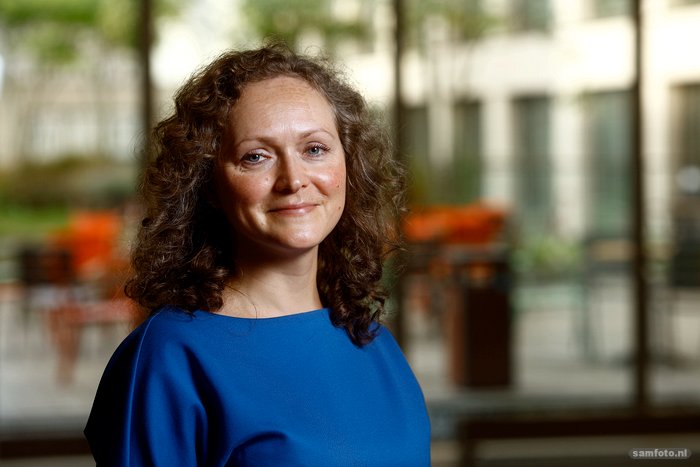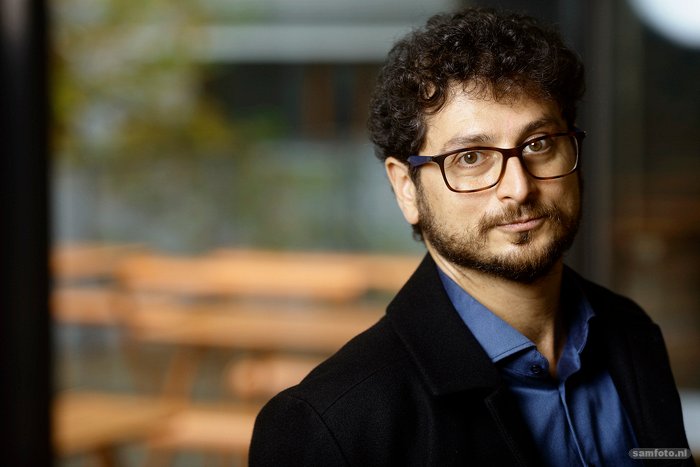Climate action is essential, but how do you get everyone on board?
Global warming is forcing governments, businesses and citizens to make major changes. So, how do you get everyone to take action? TU Delft is launching a major climate programme with an important role for governance, focused on behaviour and policy.
Forest fires, heavy rainfall, floods: the summer of 2021 had its fair share of extreme weather. Climate experts have no doubt that they were caused by global warming. Add to that August's shocking IPCC climate report and it is clear that the launch of the TU Delft Climate Action Programme in The Hague on 24 September could not have been better timed.
Of course, this summer was not what initiated TU Delft's climate action. Hundreds of researchers have been working on climate-related research for years and the university published its Climate Action vision in April 2019, clearly outlining its position: ‘TU Delft is determined to apply its intellectual and innovative powers in protecting the world population against the risks of climate change.’
As a result, the university is spending €22 million over the next decade to establish its Climate Action Programme around four themes:
- Climate Science (using metrics and modelling to understand what’s happening with the climate)
- Climate Change Mitigation
- Climate Change Adaptation and
- Climate Governance
Carefully-considered choices
Although these themes overlap and complement each other, it is the final theme – focusing on governance, as well as climate justice, policy and behaviour – that brings all the others together. Much of the necessary technology is already available – at least in theory – but is there widespread support, will the costs and benefits be equally shared, have the disadvantages been considered? If politicians or citizens and companies find climate measures too expensive, what will the cost be of failing to implement them?
In its climate vision, TU Delft refers to carefully-considered choices ‘amid a range of technological, ecological, economic, ethical and social consequences’. ‘It is the role of climate science to support and guide this process by informing society about the latest insights on climate change.’
That is the plan, but what do things look like in practice? Expert in climate resilience and professor of computational economics, Prof. Tatiana Filatova is increasingly finding out. Having joined TU Delft in April, she is the academic leader of the Climate Change Governance theme within the Climate Action Programme. In mid-September, she received detailed plans for six new research lines within her theme. Their focus includes new policy models, financial systems and human behaviour. (See box on page 27)
All of the research lines involve proposals from TU Delft scientists in different disciplines for the appointment of a fellow researcher. Within the Governance theme, there is room for four tenure track candidates. “We’ve received some exciting proposals from six great teams. We plan to select projects that make use of Delft's strengths and those that will have the most impact on Dutch society and science at international level”, says Filatova.
Much of the necessary technology is already available but is there widespread support, will the costs and benefits be equally shared, have the disadvantages been considered?
Passing on Delft knowledge
According to Filatova, all of the research involves ‘white spots’: specific areas where there are gaps in knowledge. TU Delft intends to gather that knowledge to make its mark as a climate university. But there also needs to be a tangible social impact. The research proposals suggest that this will happen thanks to governments and citizens, but how exactly?
From her work as a climate scientist, Filatova knows that governments are fully aware that new climate policy and participation by citizens and companies will be necessary, she explains. “The issue is the timing and speed of the necessary changes. We need to act now.” She believes that this will require scientists to deliver more than just knowledge and data. “We need to reach out and provide support. We need to collaborate closely with the people developing and implementing policy at local, national and international level. Currently, this is largely incidental and at personal level, but we intend to establish a shared agenda with various organisations. That's how we can make a difference.”
One way in which TU Delft intends to shape this relationship with governments and businesses is the Climate Action Hub based on TU Delft's campus in The Hague. Its role will be to disseminate Delft knowledge, explains energy and climate ethics professor Behnam Taebi, the hub's figurehead. “We would like to see politicians, advisory bodies and international organisations in The Hague reaching out to us more”, he says. That’s why the hub’s plans include organising events for MPs, civil servants and policymakers.
There will certainly be a need for that, expects Taebi. “We don’t have to convince the relevant ministries in The Hague that this is an issue that matters. It’s more a question of how you achieve change, the role played by technology and how you manage and embed that in society.”
Controversial
Achieving that will be essential, according to Taebi, as the debate about the location of wind turbines shows only too clearly. Local residents are often opposed, concerned about potential disruption, and are taking legal action to prevent the turbines. “The Netherlands lags behind on wind energy because of this controversy”, explains Taebi. “The current solution is to build offshore wind farms, but that idea only emerged after opposition to onshore wind turbines. Far too often, technically effective solutions are found, but, sadly, technological advance and implementation are quite separate from the social aspects. That’s why we always fall behind.”
In order to reduce emissions and adapt to climate change, such as rising sea levels, many more, large-scale transformative adaptations are needed, says Taebi. “We want to see the discussion about this given priority and technological solutions linked to social, economic and ethical considerations. We can contribute ideas, provide knowledge and bring parties together.”
With his work in The Hague, Taebi and his colleagues are facing the controversy around climate change head-on, trying to use research to point it in the right direction. How does he see it? “Global warming is a major problem that we need to tackle and any change will inevitably face a certain level of inertia. If we become part of the debate, we won’t run away from it. As scientists, it’s our duty to make a contribution to solving this century’s greatest challenge.”
Technologies are available, but is there widespread support, and will the costs and benefits be shared fairly?
‘If we become part of the debate, we won’t run away from it’
The potential new research lines within the theme of Climate Action Governance, in random order
- Policymakers in climate negotiations worldwide are guided by integrated assessment models (IAMs). These models calculate the social costs of CO2 emissions but have been brought into question. They fail to properly model human activity, ignore climate adaptation and also fail to take account of ethical considerations and the socio-political aspects of technological changes. Delft researchers aim to develop IAMs that do take account of these factors.
- Another group of researchers plans to combine these IAMs – which predict what climate policy would do from the top-down – with opinions from stakeholders and impact analysis models. These analyse the actual effects of climate policy from the bottom-up. The aim is to use this combination to provide rapid answers to policy questions.
- The successful implementation of any new climate technologies partly depends on economic, political and social factors. Which factors are inhibiting change and which are actually helping? Plus: how do you deal with the first and bolster the second? This is what researchers aim to achieve in designing technology-driven climate policy.
- The transition to an emissions-free, climate-proof society calls for new forms of investment for regions, cities and businesses. Delft researchers aim to analyse and design the financial tools to achieve that, together with the related policy systems.
- How does the behaviour of engineers, policymakers, citizens and businesses interrelate and how can behaviour be influenced so that it supports the necessary climate adaptations? By understanding behaviour, researchers hope to contribute to a more effective decision-making process.
- How can you support, strengthen and upscale local climate initiatives that have been set up by and for communities of people? How can you learn from these initiatives and integrate what has been learnt in engineering practice? And how can you arm a new generation of engineers with this knowledge? Delft researchers aim to explore this issue and work out how education and research can reinforce each other.


